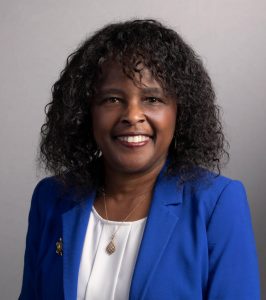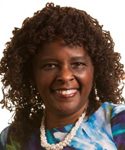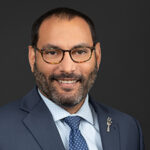Early in her career, Deborah Dyett Desir, MD, assistant professor of clinical medicine, Yale University School of Medicine, New Haven, Conn., planned to go into infectious disease. With the support of a dedicated mentor, she shifted her sights to rheumatology and hasn’t looked back. After serving in several leadership roles in the ACR and other medical organizations throughout her career, she has now joined the ACR’s Executive Committee as its new secretary. Here, Dr. Desir talks about her experiences in both academic medicine and private practice, her goals for the ACR and her passions for rheumatology and advocacy.

Dr. Deborah Dyett Desir
The Rheumatologist (TR): What does the ACR secretary do, and why were you interested in the position?
Dr. Desir: I love rheumatology and I am very interested in seeing the specialty thrive. When rheumatology thrives, our patients thrive.
The secretary is an officer of the ACR and the Rheumatology Research Foundation. In my role, I will keep minutes of all meetings of the ACR and Foundation board of directors and executive committees. I’ll also chair the Committee on Corporate Relations.
Joining the Executive Committee is a four-year commitment: the first two years [are spent] as either secretary or treasurer. That’s followed by a year as president-elect and a year as president.
TR: What do you bring to the table?
Dr. Desir: I have been a volunteer with the ACR for more than a decade. I have been on the Board of Directors, Government Affairs Committee, the Committee on Rheumatologic Care and the Finance Committee, and I served as the alternate advisor to the AMA Relative Value Scale Update Committee. I also have experience at other levels of organized medicine. I am the immediate past president of my county medical association, and I am currently on the council and finance committee of the state medical society of Connecticut.
I have insight into the demands of private practice in addition to those of academic medicine. Prior to joining the faculty at Yale Medical School, I was in private practice for close to 33 years. I started a solo practice in 1993 and built it into a large practice with two satellite offices.
I am passionate about advocacy. Rheumatologists must advocate for our patients, keeping our elected officials and their staff members informed about issues that affect our patients, workforce, practices and academic institutions.
TR: What are your goals for your tenure on the Executive Committee?



